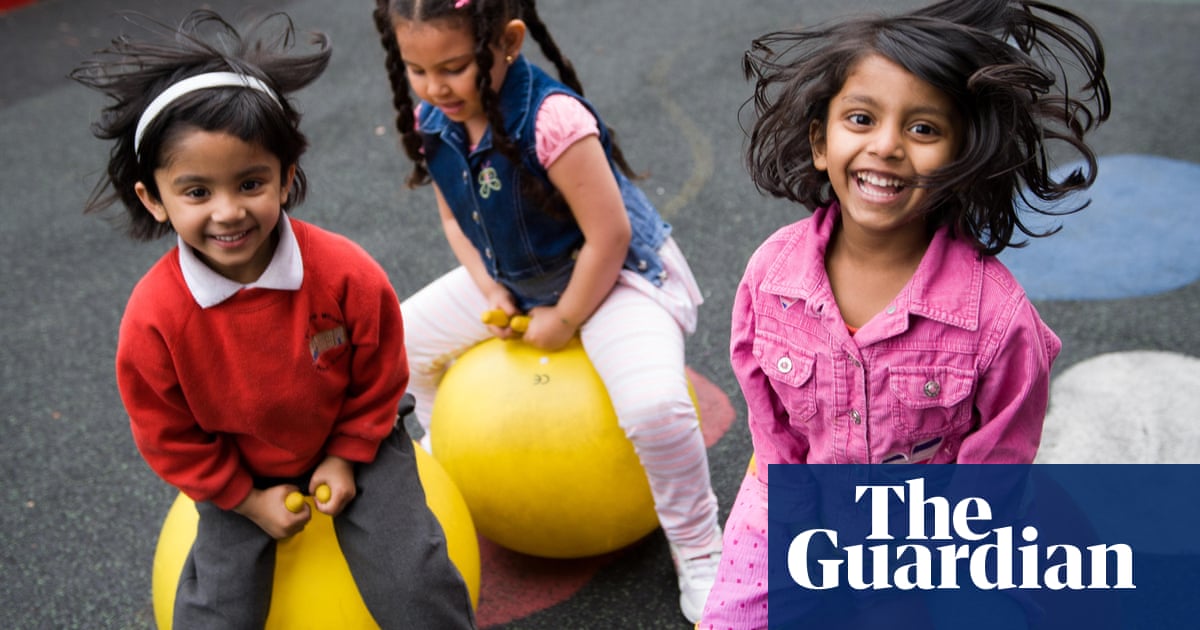Experts Warn of Declining Play Opportunities for Children in England

In a concerning report released by the Raising the Nation Play Commission, a panel of experts has highlighted a dramatic decline in play among children across England. They argue that this shift has left many children growing up “sedentary, scrolling, and alone.” The commission's findings come after a year of thorough investigation into the state of play and childhood in England, revealing alarming trends that could impact children's health and well-being.
The report calls for immediate actions from the government, including the banning of “no ball games” signs, raising the digital age of consent to 16, and reintegrating play into the educational curriculum. Additionally, the panel proposes establishing a statutory “play sufficiency duty” for local authorities, all of which should be supported by an annual funding of £125 million. These recommendations aim to ensure that children have the necessary spaces and opportunities to engage in outdoor play, which is crucial for their development.
Leading the commission are prominent figures such as entrepreneur Paul Lindley and former Children’s Commissioner Anne Longfield. They emphasize the urgent need to provide children with the freedom to play outside their homes. Lady Longfield stated, “Too many of our children are spending their most precious years sedentary, doomscrolling on their phones and often alone, while their health and wellbeing deteriorates.” She pointed out a troubling correlation: the generation that plays the least is also the one experiencing the highest rates of obesity and declining mental health.
The commission was composed of 19 experts, including doctors, educators, and play advocates, who convened to gather evidence from children, parents, and professionals nationwide. Their extensive discussions revealed a significant concern: the increasing amount of time children spend on smartphones and gaming devices is not merely due to the prevalence of technology but also stems from the diminishing availability of safe, engaging places for children to play.
Experts noted various factors contributing to this troubling trend. From traffic-heavy streets to the significant decline of youth clubs and playground funding, there has been a marked decrease in neighborhood spaces where children can play freely and safely. Ingrid Skeels, co-director of the organization Playing Out, and a commissioner for the report, expressed her long-standing concerns: “The findings here confirm what we have been warning for years – children are being driven indoors by a lack of safe spaces to play, move and socialize freely.” She underscored the need to rethink how public spaces are designed, highlighting that merely blaming overprotective parents and screen time is insufficient. “We need to create an outdoor environment where children can play in real life,” she insisted.
Children also had the opportunity to voice their opinions through a youth panel that contributed to the commission's work. A Year 7 student from London conveyed a powerful message, stating that children should be allowed to experience some risks in their play. She emphasized, “If you don’t let your child out at some point, your child is never gonna learn... parents should give their children a bit more freedom and free will so that children will be aware of the real world.” Other young participants echoed her sentiments, pointing out that local play spaces often come with limitations, are costly, or have been altogether removed. One panelist remarked, “There’s not much to do and the things that there are cost a lot of money.”
The issue of time also emerged as a significant barrier to play. Children reported that the school day leaves little room for recreational activities, with homework often extending into their free time outside of school. One Year 7 child lamented, “The reason we don’t have time to play is because we’ve got stress, we’re doing homework. All the homework Monday to Friday, we’ve got massive lines at lunch and break with barely any time to do anything. I feel like we should have a bit longer so we have more time to go outside.”
Last year, a report from the Guardian highlighted the detrimental effects of shrinking outdoor spaces in schools and reduced playtime on children's well-being and health. The commission's chairs and commissioners also examined best practices in countries where play is more integrated into children's lives. During their visit to Finland, they learned from the Ministry of Education and Culture that play is woven into the fabric of both education and childhood. Finnish guidelines suggest that children should enjoy a 15-minute break after every 45 minutes of learning, a practice backed by studies showing that shorter lessons with frequent breaks can enhance attentiveness.
Paul Lindley articulated the urgency of implementing change in England, stating, “[A]s this report shows, in England we’ve made it incredibly hard for children to play.” He noted that in countries where children's play is prioritized by government strategy, it is considered an integral part of education, health, and local governance. He urged the necessity for a national play strategy in England to cultivate a supportive environment for children’s play.
In response to the report, a government spokesperson acknowledged the crucial role of play in children's development and well-being, stating, “We recognize the vital importance of play and access to nature as part of children’s development and wellbeing.” They highlighted ongoing efforts to create healthier environments for children, mentioning initiatives such as the National Education Nature Park, which enables children to transform gray school spaces into green areas. Furthermore, they noted a £100 million investment to enhance grassroots sports facilities, all part of their broader “plan for change” aimed at supporting young people both inside and outside the classroom.

























